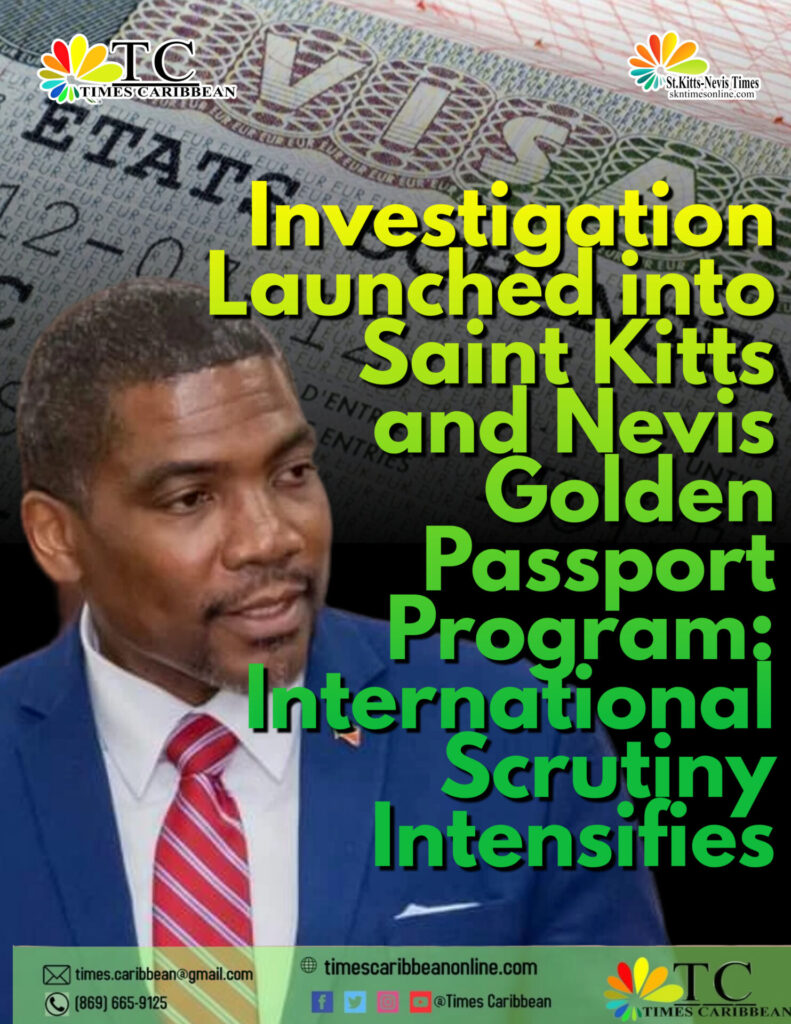Investigation Launched into Saint Kitts and Nevis Golden Passport Program: International Scrutiny Intensifies

Published Jan 15, 2024
In a move that has captured global attention, the European Union (EU) and the United States have jointly initiated an investigation into the Saint Kitts and Nevis Golden Passport Program led by Prime Minister Dr. Hon. Terrance Drew. This inquiry comes on the heels of a surge in demand for passports sold through citizenship-by-investment (CBI) schemes across five Caribbean islands, including Saint Kitts and Nevis.
Notably, the Saint Kitts and Nevis (SKN) Program had experienced remarkable success under the previous administration led by Prime Minister Dr. Hon. Timothy Harris, steering clear of scrutiny from the EU and the USA. However, the landscape changed under the new Prime Minister Drew-led administration, drawing the attention of international authorities, signaling potential concerns with the current management of the program.
Recent modifications to the SKN Golden Passport Program have led to significant declines in CBI passport sales. The EU and USA have expressed security concerns, with a major focus on allegations that passports were sold to Russians even after the country officially halted such sales under the administration of Dr. Timothy Harris in March 2022.
Speculation surrounds approvals for Russian passport applications, with indications that these were granted by the Terrance Drew administration in the latter half of 2022 after assuming office in August of the same year. This revelation has become a focal point of the ongoing scrutiny and investigation by the EU and the USA.
According to a Bloomberg report, the Golden Passport Program in Saint Kitts was projected to generate approximately $192 million, constituting 51% of the country’s revenue in the previous year. However, security concerns have cast a shadow over the program’s financial success.
Prime Minister Terrance Drew has defended the Citizenship by Investment Programme (CBI) as a crucial component of his nation’s economic strategy. He emphasizes its appeal to high-net-worth individuals and families seeking legal citizenship in the territory. Despite the scrutiny, Drew underscores the commitment of the CBI program to enhance its integrity and reliability.
The Prime Minister highlights the implementation of mandatory interviews and rigorous due diligence checks at each stage to ensure strict compliance with regulations and international best practices. He asserts that St. Kitts and Nevis serves as an inspiration globally in terms of this program, with the international community acknowledging their efforts.
However, the broader context of citizenship and residency by investment schemes faces challenges, as accusations of involvement in irregular activities such as money laundering and tax evasion persist. A joint project by the Financial Action Task Force and the Organisation for Economic Co-operation and Development revealed that these programs are sometimes exploited by criminals and corrupt individuals for illicit purposes.
As the investigation into passport sales through citizenship-by-investment schemes unfolds, it prompts questions about the future of such programs in the Caribbean and their potential global implications. The outcome of this inquiry may reshape the landscape of CBI initiatives, impacting nations relying heavily on these programs for economic sustenance. The international community watches closely as the implications of these investigations unfold.

Leave a comment
You must be logged in to post a comment.